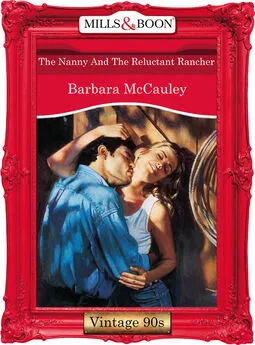Barbara Hambly - Dead water
- Название:Dead water
- Автор:
- Жанр:
- Издательство:неизвестно
- Год:неизвестен
- ISBN:нет данных
- Рейтинг:
- Избранное:Добавить в избранное
-
Отзывы:
-
Ваша оценка:
Barbara Hambly - Dead water краткое содержание
Dead water - читать онлайн бесплатно полную версию (весь текст целиком)
Интервал:
Закладка:
She shaded her eyes with her hand to look up at him—she was barely five feet tall in her faded osnaberg dress—and asked, “Are you running away?”
“I'm running away from them, ” he replied in French, and produced his free papers from the inner pocket, where he'd kept them hidden. He didn't expect she'd be able to read them—it was against the law to teach slaves to read and write, mostly so they couldn't write up their own passes—but she took the paper and scanned it, and said, as she handed it back. “Those were not the patrols, then, M'sieu Janvier? You were right to run. There are slave-stealers all along the river. The men here stay indoors at night, and close to their work by day, for fear of them more than for any consideration of the patrols. Come into the kitchen—the master is hunting in the woods today and will not be back until night. I think one of the men here can help you get to where you are going.”
Her name was Mary. “Marie-Hélène, before my master re-baptized me as a Protestant—a ‘real Christian,' he calls them—and wed me to my current husband.” Her voice was dry. “My marriage to Jean-Claude in New Orleans was only a Catholic one, he said—he is a minister of his own Church, my master, called to the faith, he says, by God Himself.”
January glanced outside, to where Mary's husband, Amos, and Lafayette, the younger cotton-hand, were putting the mule to the wagon. Amos was a medium-sized man, impassive and heavy-muscled. Close to, in the shadows of the kitchen, January could see the dark mark of an old bruise on Mary's face, and a small fresh scar beneath her left eye. It was none of his business, he thought, and Amos was going to drive him across the river and down Steele's Bayou—neither of which was anywhere near this small bottomlands farm—almost certainly saving him from the Reverend Christmas and his boys.
Was it Amos's fault, January asked himself, that he had in him smoldering anger equal to January's own? Anger that would unleash itself on the nearest and weakest target?
He thought of Julie on the boat, rocking back and forth in Rose's arms. What'm I gonna do?
With a baby in arms and two more hanging on to her skirts, Mary was obviously not going to run anywhere.
How did you get here? he wanted to ask her as she laid before him a couple of ash-pones and a cup of milk, food her master might well want an accounting of at the end of the day. What are you doing here, with your good French and your beauty and your quick movements, so unlike those of the field-hand who knows that to conclude work swiftly will only earn another task?
But he already knew the answer to this, and the harrowing-up of details would be no joy to her. So instead he raised an eyebrow and asked, “And was this Divine communication via a burning bush, or the more modern whirlwind method?” And laughed as the young woman recounted her master's vision of the fiery letters “GPC,” which had appeared to him in a dream:
“He said they must surely mean Go Preach Christ, though the members of the local Methodist synod who rejected his application for the ministry suggested that Our Lord more probably meant Go Pick Cotton . . . .”
“You have no idea,” she said as she and Amos helped him into the back of the wagon and piled brush and kindling over him, “how good it is to hear good French spoken again, and to see—” She hesitated, sadness darkening her eyes. “Oh, anyone new. Anyone at all.”
Her voice was wistful. The sun, already slanting over above the encircling woods of cottonwood and pine, made black squares on the bare earth around the house; the cawing of the crows seemed to emphasize rather than break the dense stillness of that solitary farm. “When you return to the city—if you return to the city—burn a candle for me to the Virgin, and tell her that I pray to her in secret every night. Yes, yes, cher, I am coming,” she added as the toddler in the passway between the two rooms of the cabin began to scream.
“You make sure you get them sheets washed after the bread's in,” grunted Amos, springing to the wagon-box and picking up the reins. “Marse gonna be sore enough when he come home, 'bout how little cotton we got hoed.”
“I will tell Marse that you were overcome by the heat, and lay down until the earth stopped spinning beneath your feet,” said Mary, and pulled down the last chunks of dried brush and palmetto-leaves over January's head. “Do not agitate yourself about Marse.”
“Yeah,” grumbled the man, “you good at lyin', woman.” And he lashed the mule hard with a cotton stalk.
The wagon lurched as it pulled away down the rutted track toward the bayou. The last January saw of the young woman Mary was of her walking back toward her master's cabin, her newest baby on her hip and her shoulders bent with exhaustion.

ELEVEN
Whether or not Amos and his wagon passed the Reverend Christmas on the road, January never knew. They passed someone who called out drunken jovialities at Amos (“Hey, Sambo, bit early to be haulin' the cotton to market!”) , but January kept under the brushwood. Even when he would have gotten out to help with the ferry, the field-hand snapped, “You stay put in there,” and dragged on the creaking winch himself to get the raft across the sluggish Yazoo. His mind relieved of most of his concerns about being enslaved—or murdered—himself, January had ample leisure to conjure visions, some of them completely illogical or impossible, of Rose or Hannibal being enslaved—or murdered—as one or the other of them attempted to rejoin him in the dark yard opposite the Majestic Hotel.
Now that he was no longer running, exhaustion overtook him, amplified by the stifling heat under the brushwood and the canvas stretched over it. He would have slept had the condition of either the road or the unsprung wagon-bed permitted it. As it was, his weary mind produced pictures of himself waiting on the riverbank by the mouth of Steele's Bayou for days for a boat that had gone past already, waiting until he was caught by Reverend Christmas. . . . How would he know whether the Silver Moon had passed or not? And how would he convince Kevin Molloy to land the boat and let him come aboard, particularly if Hannibal had been murdered (or enslaved) back in Vicksburg . . . ?
Then the jolt of a wagon-wheel in a pothole slammed him from his half-dreaming doze into painful contact with the side of the wagon, back into heat and thirst and the aching stiffness of enforced immobility.
How quickly would the Silver Moon negotiate the long bends of the river that lay between Vicksburg and Steele's Bayou? He felt he'd been traveling for days, but the heat beneath the kindling-wood seemed unaltered, and the wagon was jolting too badly for him to put his eye to any of the numerous cracks in the side. It was still daylight. Had God halted the sun in the Heavens, as He had for the Israelites in battle? They'd never reach the riverbank before the boat passed. . . .
“You in luck,” announced Amos as if he deeply regretted the fact.
January squirmed out from beneath the brushwood and sat up.
The Silver Moon was visible perhaps a half-mile downstream, hung up on one of the innumerable gravel bars that dotted the wide expanse of the river's loop. Men swarmed the decks in the slanted evening light, and January could see the long iron poles, like extra masts, wavering and wobbling above the hurricane deck as the men thrust them down into the mud of the bar. The boat must be firmly stuck, he reflected, for them to be sparring that way. He could see the piles of crates and trunks on the bank under a small guard of deck-hands, with the skiff beached beside them, where they'd been off-loaded to lighten the boat's draft.
He sprang down from the wagon, held out his hand to Amos. “Thank you,” he said, and handed the man one of the three dollars that remained to him. “More than I can ever say.”
The field-hand said, “Huh,” took the dollar, and pulled the mule's head savagely around. Whether the comment implied annoyance, envy, scorn, or shyness, January didn't know, for Amos lashed the beast's flanks with the cottonstalk whip, and drove back into the woods without another word.
Horsehead Bar—which January guessed this had to be—lay obliquely out into the channel, formed by the wash-off from a small point a half-mile or so below the bayou mouth. He couldn't imagine how even an inexperienced pilot like Mr. Souter could have missed it: trees and debris snagged on it showed clearly above the surface in four or five places. As he drew near the bar, the Mississippi planter Lockhart—who was in charge of the deck-hands around the luggage—exclaimed, “By God, just what we need, another pair of hands! You, boy . . . !”
And Colonel Davis came over from the skiff, rifle in hand, and said, “Why, it's Ben, isn't it?”
“Was last time I looked, Colonel Davis.” January scraped at the dried scum that still covered his clothing from his dip in Chickasaw Bayou, additionally speckled with straw from the wagon-bed and bits of brushwood. “Though I can't tell myself who I am, under all the mud.”
“There,” said Davis triumphantly to Lockhart, “I told you the boy hadn't run away.” Though he called him “boy,” Davis was probably January's junior by a dozen years. “You treat darkies decently and they are as loyal as any man.”
“Run away?” January scratched a shower of twigs from his hair. “You got to be joking, sir. Man'd have to be crazy to run away in this country.” And the men around him laughed. “I nearly got stole and sold to Texas twice, and that's the truth. . . .”
“Go on out to the boat,” chuckled Davis, and slapped him companionably on the shoulder. “They need every pair of hands out there. We're glad to have you back safe and sound.”
The water over the bar was so low, January could walk out along it most of the way to the boat, and it was seldom more than breast-deep thereafter. Where it was over his head, the bar broke the current so effectively that the water behind lay almost still. Rose and Hannibal emerged from the engine-room doorway and ran to the railing as January drew near: Hannibal held a rifle, one of the .45-caliber Lemans that were generally locked in the purser's office.
Simple caution on this relatively isolated stretch of the river? January wondered. Had someone—Mr. Lundy, perhaps?—convinced Mr. Tredgold that Levi Christmas might attack the boat?
Or had they armed all the white men on board because both coffles of slave men had been unchained and pressed into service in raising and planting the long sparring-poles? In the blue shadows of the starboard promenade the chains hung down empty against the wall, like a horrid still-life, and he heard 'Rodus's voice call out from the hurricane deck, “Slip her down!” followed by the splash of the pole-end in the shallow water at the stern.
“What the hell happened?” January asked softly as Rose threw herself into his arms regardless of his soaked and muddy clothing and the fact that they weren't supposed to have known each other before the voyage began.
“That is, as Hamlet said, the question,” replied Hannibal. He was in shirtsleeves, like all the other men on deck, and didn't look like he'd slept. Rose, too, looked haggard and ashy. “I was on my way back to join you, when I saw that wench Sophie. . . .”
“Well, I'm sure this is all very touching,” chuckled Mr. Souter, emerging from the engine-room rubbing his hands. “And I'm sure your boy has some remarkable tales to tell of his odyssey—” He flung out his arms like a barker at a raree-show, “Amazing feats by land and sea! But let's save the tears of joy for after we get this god-damned boat off this god-damned bar. . . .”
Читать дальшеИнтервал:
Закладка:








